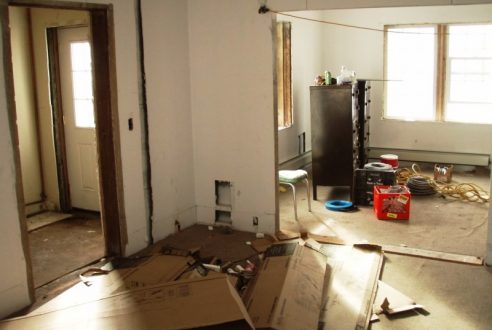Investing in rental property can be lucrative, but it can also come with its challenges. Renting your property will generate not only profits, but also lots of problems. And, this is why from my experience, I’m going to reply to your question: What are the problems a landlord can face when renting a property?
Late or Partial Rent Payments (Or No Payment at All)
 I was previously in the real estate industry and in my experience, I’ll say that late or partial rent payments are one of the most common, if not most dreadful, problems faced by landlords.
I was previously in the real estate industry and in my experience, I’ll say that late or partial rent payments are one of the most common, if not most dreadful, problems faced by landlords.
As a landlord, you can sometimes be understanding, but you need to remember that this is a business and your tenants need to pay the rent as per the legal contract they signed. And, this is why before renting out your property, you need to make sure that there is no leeway about late payment penalties in the lease they’ll be signing; your legal property management system should be rigid and you need to account for the late fees in your cash flow at the year’s end.
You should expect prompt payment for the same reason that banks expect payments of loans on due time. In fact, banks don’t understand pleading and begging phone calls and they will never accept late payments out of sympathy. The same goes for insurance companies and contractors. As a landlord, you have your own expenses, mortgages, insurance and maintenance costs and the income you get from rent is just like the salaries your renters are getting. And, I can bet that most employees would become angry or agitated if their paychecks were paid even one day late. So, if you don’t want to deal with late payments or lame excuses, make sure you’ve protected yourself…legally.
Noisy Neighbors
 Things can get a little tricky when you are renting out your property to a bunch of college students, especially a property that’s situated in a residential area. In this kind of neighborhood, you got families with kids, people in their fifties and even eighties and most importantly, people who work long hours and to whom, sleeping time is very important. However, it’s no big secret that the bunch of kids living on your property would have parties with very loud music every night to the small hours. And, if they are living in apartments, they could mount their stereo speakers on the walls separating the living spaces and when they would play their stereo, it would eventually disturb their neighbors.
Things can get a little tricky when you are renting out your property to a bunch of college students, especially a property that’s situated in a residential area. In this kind of neighborhood, you got families with kids, people in their fifties and even eighties and most importantly, people who work long hours and to whom, sleeping time is very important. However, it’s no big secret that the bunch of kids living on your property would have parties with very loud music every night to the small hours. And, if they are living in apartments, they could mount their stereo speakers on the walls separating the living spaces and when they would play their stereo, it would eventually disturb their neighbors.
Before the neighbors complain to the police or the council, as a landlord, you could use a friendly approach with your tenants. You can inform them of the disturbance they are causing to the neighbors and ask them politely to reduce the noise. And, here the key is good communication. Don’t try to boss around or scold your tenants like how a mother would do with her kids; instead try to make them understand how they could land in trouble if the neighbors complain. And, always remember to include a clause about restricting noise level in your lease contract.
Lots of Hosts
 First, let me make it clear, I’m not talking about a co-tenancy (where several tenants sign a lease for a single rental property). It’s about when you rent a property to, let’s say, two people for example, and the renters invite 10 of their friends to live with them in the house.
First, let me make it clear, I’m not talking about a co-tenancy (where several tenants sign a lease for a single rental property). It’s about when you rent a property to, let’s say, two people for example, and the renters invite 10 of their friends to live with them in the house.
Usually, some landlords like to include a lease agreement that would disclose the number of people living in the house and this agreement would set a limit or a rule that renters would have to stick to. In case when this rental agreement is breached, some landlords would either evict the renters out or ask them to pay more.
So, if you don’t want to have to deal with unexpected guests, make sure you include this clause in your rental lease.



